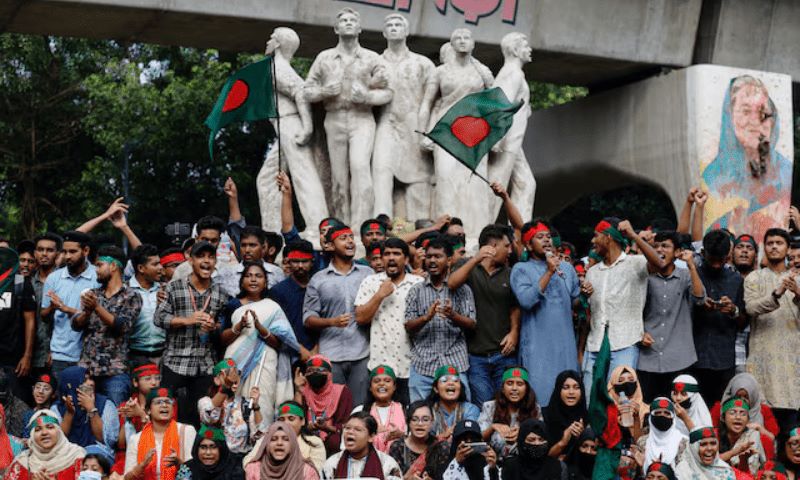Bangladesh to Launch Sweeping Reforms on Uprising Anniversary
Dhaka: Bangladesh’s caretaker administration has announced it will unveil a comprehensive package of democratic reforms on August 5, marking the first anniversary of last year’s historic mass uprising that brought down the country’s longtime autocratic regime.
The South Asian nation of 170 million has been navigating a delicate political transition since massive student-led protests led to the ouster of former Prime Minister Sheikh Hasina on August 5, 2024, ending her controversial 15-year tenure.
Nobel Peace Prize laureate Muhammad Yunus, 85, who was appointed as chief adviser of the interim government following the revolt, has said he inherited a system plagued by deep dysfunction and institutional decay.
Yunus had earlier pledged to introduce a sweeping set of reforms aimed at restoring the country’s democratic institutions. However, negotiations among political factions have moved slowly, with rival parties jockeying for influence ahead of the national elections expected in early 2026.
Despite the challenges, Yunus’s team has emphasized the importance of political unity in safeguarding the hard-won momentum of the past year. “We are working to establish a broad-based national consensus around a reimagined political framework, one that ensures inclusive, participatory, and credible elections,” Yunus stated during a public address on July 29.
The reform package, dubbed the “July Proclamation”, will be formally presented to the nation on August 5. According to Yunus’s office, representatives from all major political groups involved in the 2024 uprising are expected to attend the event.
Hasina’s former government had come under intense scrutiny for its alleged human rights violations, including mass arrests, extrajudicial killings, and politicization of state institutions. Critics also accused her of manipulating elections and eroding democratic checks and balances.
Following her fall from power, the 77-year-old former premier fled to India, where she remains in exile and faces charges in absentia related to crimes against humanity. She has reportedly refused to comply with court summons issued by Bangladesh’s transitional judicial authorities.
The movement that ended her reign began on July 1, 2024, sparked by student protests against a controversial public-sector job quota system. The unrest quickly escalated, culminating in a dramatic takeover of the presidential palace by protesters on August 5, prompting Hasina’s escape via helicopter.
As Bangladesh approaches this pivotal anniversary, the focus now shifts to whether Yunus’s interim government can lay the groundwork for a democratic future that addresses the grievances that ignited last year’s revolution.


Comments are closed.